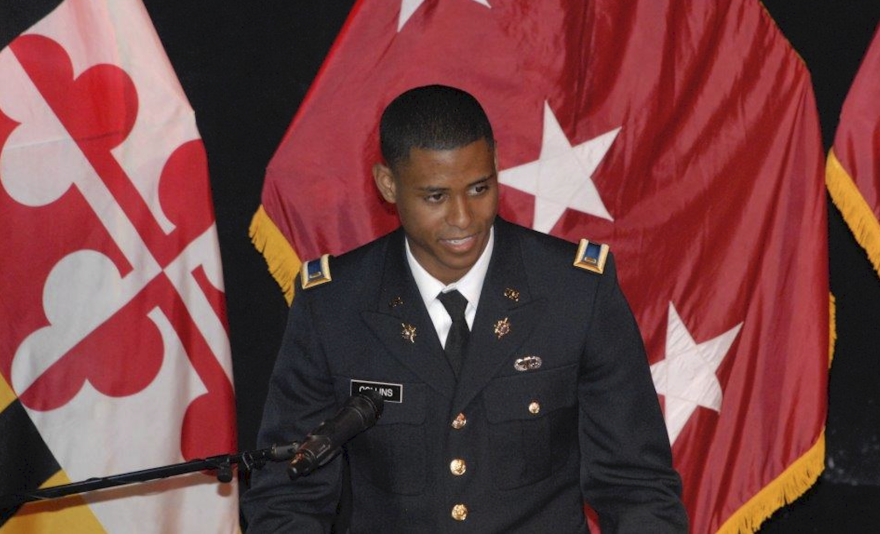Earlier this month a mostly white mob raided the Capitol, vandalizing the building, threatening to kill members of Congress and then-Vice President Mike Pence, and attacking police officers, killing one.
The deadly attack was driven not just by Donald Trump’s lies about a stolen election but by years' worth of misinformation, conspiracy theories, and white supremacist organizing online.
Rick and Dawn Collins understand white supremacist violence all too well.
Their son, Army 1st Lt. Richard Collins III, was a Black Bowie State University student murdered just three days short of graduation in 2017. He was stabbed to death by Sean Urbanksi on the campus of University of Maryland, College Park.
Urbanski, a white man, was a member of a racist Facebook group called Alt Reich: Nation and had memes on his phone endorsing anti-Black violence.
The Collins family sees a direct line from the violence that took their son's life and the insurrection in Washington, D.C. "I look at our son as being among the first casualties of that assault on the Capitol," Rick Collins told Future City. "Little could we have imagined when this happened to us that this was part of a larger movement that plagues this nation, as was so plainly demonstrated on January 6th of this year."
On January 14th, Sean Urbanski was sentenced to life in prison with the possibility of parole for first degree murder. Despite evidence that the murder was racially motivated, a Prince George's County judge dropped a hate crime charge against Urbanski, saying that prosecutors couldn't prove that that the killing was committed soley because Collins was Black.
Maryland law at that point defined a hate crime as one committed “because of another person’s or group’s race, color, religious beliefs, sexual orientation, gender, disability, or national origin, or because another person or group is homeless.” The phrase "because of" made it particularly difficult to prosecute a hate crime in Maryland. It meant that prosecutors had to prove that identity-based prejudice and hatred was the only motivating factor in a crime, a difficult task when most crimes are motivated by multiple factors.
A new law, though, came into effect at the end of last year that expanded the definition of hate crimes to those “motivated either in whole or in substantial part" by things like racism, sexism, and homophobia. It was called the Collins Law in honor of 1st Lt. Richard Collins III.
Rick and Dawn Collins join us on this month's Future City to share their son's story and their journey since his death as well as share their reflections on the Capitol attack.
Plus, we talk to Angelo Carusone, President of Media Matters, about the role that social media played in the Capitol attack and what social media companies are--or aren't--doing to push back against white supremacy and conspiracy theories online.




